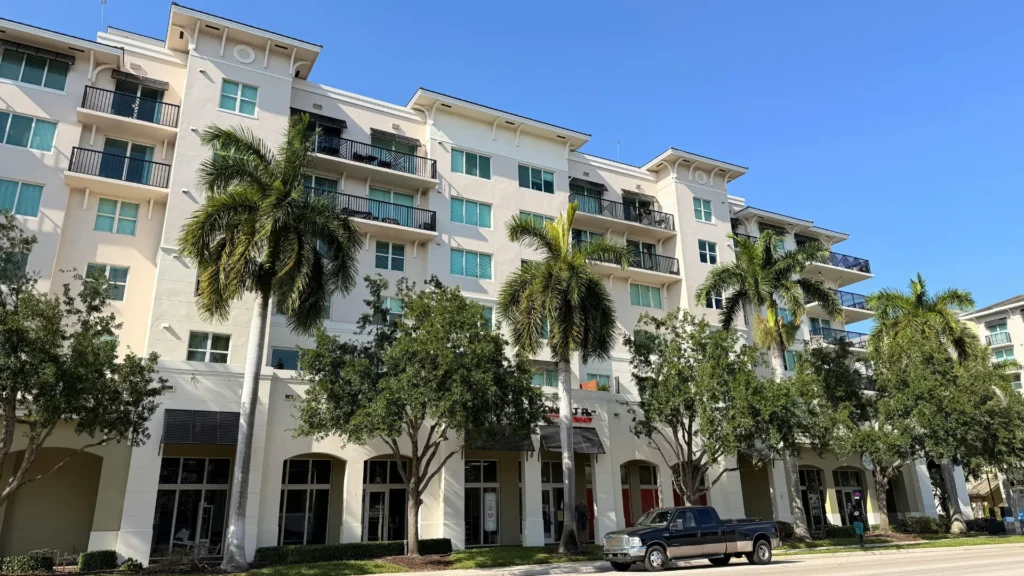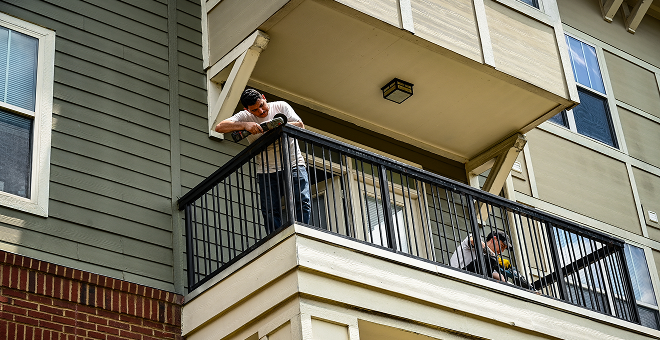If you manage or own HUD-assisted housing, national housing compliance isn’t optional — it’s essential. Between inspections, Section 3 rules, financial reporting, and occupancy standards, the expectations from the Department of Housing and Urban Development (HUD) have never been more detailed.
Failing to stay compliant can lead to serious consequences: funding loss, audit findings, withheld payments, or even HUD enforcement actions. Fortunately, with the right systems and support in place, you can avoid those risks — and NSPIRE Experts is here to help.

What Is National Housing Compliance?
HUD’s Role in National Housing Compliance Oversight
The Department of HUD oversees national housing compliance for thousands of properties across the U.S., ensuring that federally funded housing is safe, affordable, and accessible. Whether you operate public housing, Section 8 properties, or FHA-financed multifamily communities, HUD’s rules apply — and they’re closely monitored.
HUD enforces compliance through inspections, audits, financial reporting systems, and reviews of occupancy and tenant eligibility.
Why National Housing Compliance Matters for Property Owners and Managers
Compliance isn’t just about checking boxes. It’s about maintaining funding, protecting residents, and avoiding financial penalties. A failed inspection or audit can trigger:
- Re-inspections or program flags
- Temporary or permanent funding holds
- Referral to HUD’s Departmental Enforcement Center
- Barriers to participating in future HUD programs
That’s why national housing compliance is a year-round effort — not just a last-minute scramble.

HUD Programs That Require National Housing Compliance
HUD-Assisted Programs Subject to National Compliance: Section 8, 202, 811, FHA Loans
HUD’s compliance requirements apply to a wide range of programs, including:
- Section 8 Project-Based Rental Assistance
- Section 202 (Elderly) and Section 811 (Disabled) housing
- FHA-insured loans like 223(f), 221(d)(4), and 232
- Public housing managed by local housing authorities
If your property benefits from these programs, HUD requires strict operational and financial compliance.
National Housing Compliance Requirements in Use Agreements and HAP Contracts
Your regulatory agreement, Housing Assistance Payment (HAP) contract, and use agreements spell out your exact compliance obligations. These documents are legally binding and outline what HUD expects — from tenant eligibility procedures to financial reserves and reporting timelines.
Learn more about what happens during a review: What Is a HUD Inspection Like?

Core Requirements for National Housing Compliance
Inspection Readiness Under National Housing Compliance Standards (NSPIRE)
Under the new NSPIRE Standards, HUD inspections are more focused on resident health and safety. Common inspection findings include:
- Missing smoke detectors
- Pest infestations
- Broken stair rails or exits
- Water intrusion or mold
- Unsafe electrical outlets
The scoring system is now unified across programs, with strict correction timelines:
- 24 hours for life-threatening issues
- 30 days for severe issues
📋 Stay prepared: Download the Free NSPIRE Checklist
Financial Reporting and National Compliance via REAC FASSUB
Most HUD-assisted properties must submit annual financial statements through REAC’s FASSUB system. Owners must:
- Use HUD-compliant accounting procedures
- Submit reports on time
- Maintain separation of project and non-project funds
- Avoid unauthorized withdrawals from reserve accounts
Failure to follow these rules often leads to audit findings or flagged accounts.
Occupancy, Lease Files, and Tenant Eligibility Compliance Documentation
Leases must include specific HUD clauses. Tenant files must contain:
- Income verification
- Properly executed Form 50059
- Signed leases with required disclosures
- Recertification documentation
HUD auditors routinely flag properties for missing or incomplete tenant files — and that can threaten funding.

Section 3 and National Housing Compliance
How Section 3 Compliance Fits Into National Housing Compliance Reviews
Section 3 ensures that economic opportunities created by HUD funding go to low- and very low-income individuals. HUD conducts random or risk-based compliance reviews to assess how well recipients are meeting their Section 3 obligations.
Records and Reports Required for Section 3 HUD Compliance
During a Section 3 review, HUD may request:
- Lists of Section 3 workers or business concerns
- Labor hour documentation showing % of Section 3 workers
- Outreach efforts (flyers, union notices, job postings)
- Contracts awarded to Section 3 businesses
- Procedures for verifying Section 3 eligibility
Grantees should maintain these records year-round.
Tracking Section 3 Labor Hours and Outreach for National Compliance
HUD is placing more emphasis on labor hour tracking — especially for contractors and subcontractors. Maintaining solid documentation now can prevent disputes during a future review.
Also check: Apartment Inspection Laws for your local legal responsibilities.

HUD Monitoring, Inspections, and Audits
How HUD Selects Properties for Monitoring
HUD selects properties for monitoring based on:
- Complaints
- Routine audit flags
- Annual risk assessments
- Geographic sampling
- Patterns of late reporting or findings
Not all reviews are scheduled in advance — HUD may visit or audit without warning.
What to Expect During a National Housing Compliance Review or Site Visit
HUD may request:
- Consolidated Plans or Annual Action Plans
- Labor hour reports
- Contract documents with Section 3 provisions
- Tenant files
- Financial reports
- Evidence of prior corrections
Onsite inspections may include interviews, walkthroughs, or follow-up visits.
Common Violations to Avoid
- Unauthorized equity distributions
- Underfunded tenant security deposits
- Overpaid or miscalculated management fees
- Reserve withdrawals without HUD approval
- Improper lease execution or income documentation
- Missed annual reporting deadlines
Related: CapEx vs OpEx — How to budget for corrective work.

Best Practices to Maintain National Housing Compliance Year-Round
Creating a Year-Round Compliance Calendar
Track key HUD deadlines:
- Inspection timelines
- REAC FASSUB due dates
- Tenant recertifications
- Financial audits
A compliance calendar helps prevent last-minute emergencies and failed inspections.
HUD’s Five-Step Process for Compliance Reporting
As outlined in HUD’s Multifamily Toolkit, the five key steps are:
- Develop an internal reporting plan
- Collect and consolidate your data
- Reconcile records internally
- Submit via HUD-approved systems
- Reassess and apply quality controls
Repeat this process after each reporting cycle to stay audit-ready.
Training Your Team for Ongoing HUD and National Compliance
Make sure your team is trained on:
- NSPIRE Standards
- Tenant file documentation
- Section 3 tracking and labor hours
- Financial separation and reserve usage
- HUD forms and system logins
Bringing in a HUD-experienced partner can reduce stress and protect funding.
Explore: NSPIRE Pre-Inspection Services
Why Choose NSPIRE Experts
Nationwide HUD Compliance Support with a National Reach
We support housing authorities, investors, and property managers in every state. Our teams are built around HUD’s evolving standards and inspection formats.
Onsite Pre-Inspections to Support Housing Compliance
From checklist reviews to deficiency corrections, our Pre-Inspection Services catch problems early — so you’re ready before HUD arrives.
Get a Free Quote for Compliance Support
Don’t wait for a violation. NSPIRE Experts can help you:
- Prepare for inspections
- Fix noncompliance issues
- Train your team
- Protect your funding
Keep Your Funding Secure with National Housing Compliance Experts
National housing compliance is more than a legal requirement — it’s the key to safe, sustainable, and well-funded housing operations. Whether you’re navigating inspections, audits, or annual reports, NSPIRE Experts can help you stay compliant, confident, and inspection-ready.
Download the Free NSPIRE Checklist
Get a Free Quote
Stay ready, funded and HUD-compliant.
